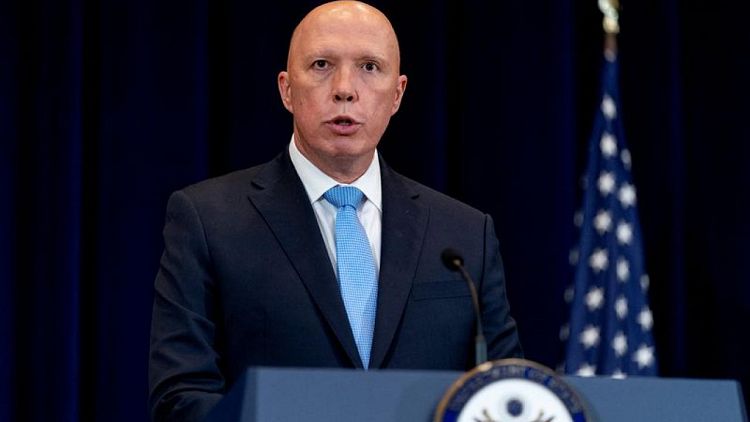SYDNEY - Australia and Britain will "fight back" against cyber attacks from China, Russia, and Iran, defence minister Peter Dutton said ahead of consultations with Britain in Sydney.
Australia's defence and foreign affairs ministers are due to meet Britain's defence secretary Ben Wallace and foreign secretary Liz Truss on Friday for the annual Australia-United Kingdom Ministerial Consultations (AUKMIN).
Dutton said the meeting would have a big focus on cyber.
"Both the UK and Australia get regular attacks from Russia and from China, Iran and other countries," he said on radio, adding they would "fight back".
China and Russia have both repeatedly denied Western allegations that either was behind cyber attacks. Iran has previously denied government involvement in cyber attacks in Australia.
Ahead of the meeting, foreign affairs minister Marise Payne on Thursday signed an agreement with Truss under which Australia and Britain will coordinate cyber sanctions regimes to increase deterrence.
That would raise the costs for hostile state activity in cyberspace, Payne said.
"Australia is committed to working with partners such as the UK to challenge malign actors who use technology to undermine freedom and democracy," Payne said in a statement.
A separate agreement to jointly invest in infrastructure in the Indo-Pacific region was also signed.
"The UK is committed to building a ‘network of liberty’ and that means championing democracy by supporting countries in the Indo-Pacific to resolve their development needs," Truss said in a statement.
Friday's discussions will also cover Australia's nuclear submarine program.
The new Aukus defence alliance with Britain and the United States, which last year prompted Australia to cancel a contract for a conventional French submarine in favour of a nuclear submarine program supported by the United States and Britain, was crucial for Australia, Dutton said.
"They are big countries and they have big military machines and are important allies and friends for us as a smaller country of only 25 million people if we are going to deter countries from aggressive behaviour," he said.
